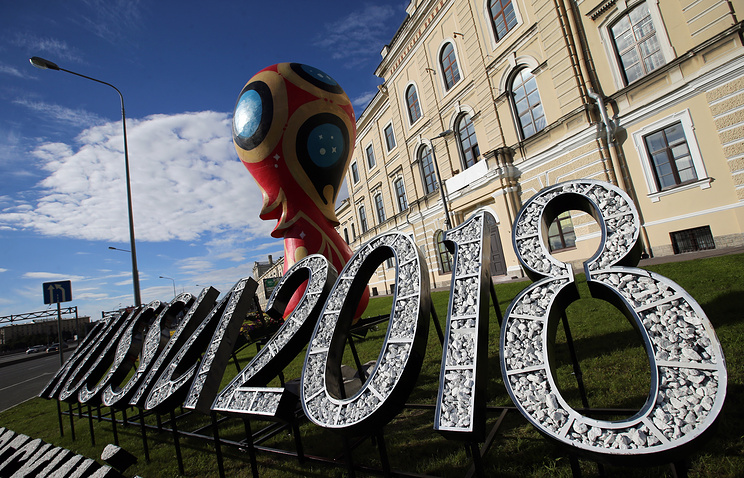
Sports leaders beware: the “B” word is back.
First, ahead of Pyeongchang 2018, now in the build-up to the 2018 FIFA World Cup in Russia, the word “boycott” has returned to the lexicon of political discourse.
Sporting officials of my sort of age and above could be forgiven for shaking their heads and wondering if the lessons of a generation ago are going to have to be re-learned.
A lasting consensus appeared to have formed that the main victims of the boycotts which marred consecutively the 1976, 1980 and 1984 Summer Olympic Games were not the intended targets, but the athletes deprived of potentially the crowning moment of their careers.
By this logic, Harry Kane would be much worse affected by a decision that England should stay away from this summer’s World Cup than Vladimir Putin.
Yet, as I write, a World Cup boycott is one of the top two or three subjects of national conversation.
Are we entering a new period in which organizers of sports mega-events must steel themselves for the risk of serious disruption as a consequence of mounting international political tensions?
Certainly, the British Government is under pressure to do something, having formed the view that, in the words of Prime Minister Theresa May, it was “highly likely” that Russia was responsible for the apparent poisonings that are the latest flashpoint in relations between the two countries.
This in spite of steadfast Russian denials.
For the time being though, I think it is a little too early to conclude that politicians are reverting to a 1970s state of mind regarding sporting boycotts.
For one thing, to state the obvious, there was no boycott of Pyeongchang 2018.
For another, the comment which sparked the current boycott debate around a week ago, by British Foreign Secretary Boris Johnson, amounted to one sentence in a lengthy House of Commons debate about Government policy on Russia.
In response to a question from a Labour MP about the United Nations Security Council, Johnson brought up the World Cup, saying, “it is very difficult to imagine how UK representation at that event could go ahead in the normal way.”
The prominence this has since been given seems to have been more a consequence of the media deciding it was a fertile line, along with the fondness of social media denizens for gossiping about sport, than any burning desire on the part of the Government to signal that an out-and-out World Cup boycott was at the forefront of their minds.
Indeed, clarification later emerged to the effect that Johnson was alluding to the possibility that officials, dignitaries and ministers might not attend the competition, rather than that the England team itself would stay away.
For all that, you can see why the concept of the sporting boycott might continue to appeal to politicians: like-for-like retaliation is hard; it would have a symbolic impact, much like removing consular officials, but without the downside of losing such representation for a period; and, of course, it would make a big media splash.
In this particular case, however, while it might also salve the lingering sense of grievance about losing the vote to host the tournament, it is hard to see how an England boycott would harm Putin in any way – unless other teams walked out in sympathy, which seems, at least for now, a long shot.
If it were just England, one imagines FIFA would simply hand its place to a non-qualifier with a minimum of fuss; my money would be on Italy.
At this advanced stage, I would say any notion of moving the tournament was a non-starter, unless the situation deteriorates a very great deal and the UK builds a formidable coalition of support.
Assuming he is re-elected next week, as widely expected, Putin ought to have the freedom of maneuver to make absolutely sure that does not happen.
Ironically, the UK Government does, I believe, have the wherewithal to make the World Cup build-up most uncomfortable for Russia; but it would take immense resolve to play the necessary card.
Think about it this way: as well as a reasonable but hardly world-beating international team, England’s quiver of football assets includes, far more significantly, the planet’s most valuable national club competition – the Premier League.
Just imagine the pandemonium if the Government announced that any footballer who played in the World Cup would be barred from playing in the Premier League next season.
The potential impact of that would be far more widespread, since a large proportion of the 32 qualifiers will wish to include players from Premier League clubs in their World Cup squads.
I doubt they would be able to follow through on the threat; quite apart from the batteries of phone calls from distraught club chairmen, such a maneuver would come too close to a national Government exercising a veto over who other countries could choose for their teams.
But if they dug in their heels even for a week, it would focus minds and underline the soft power that the Premier League potentially puts at Britain’s disposal.
By David Owen
Republished with permission from insidethegames.biz.